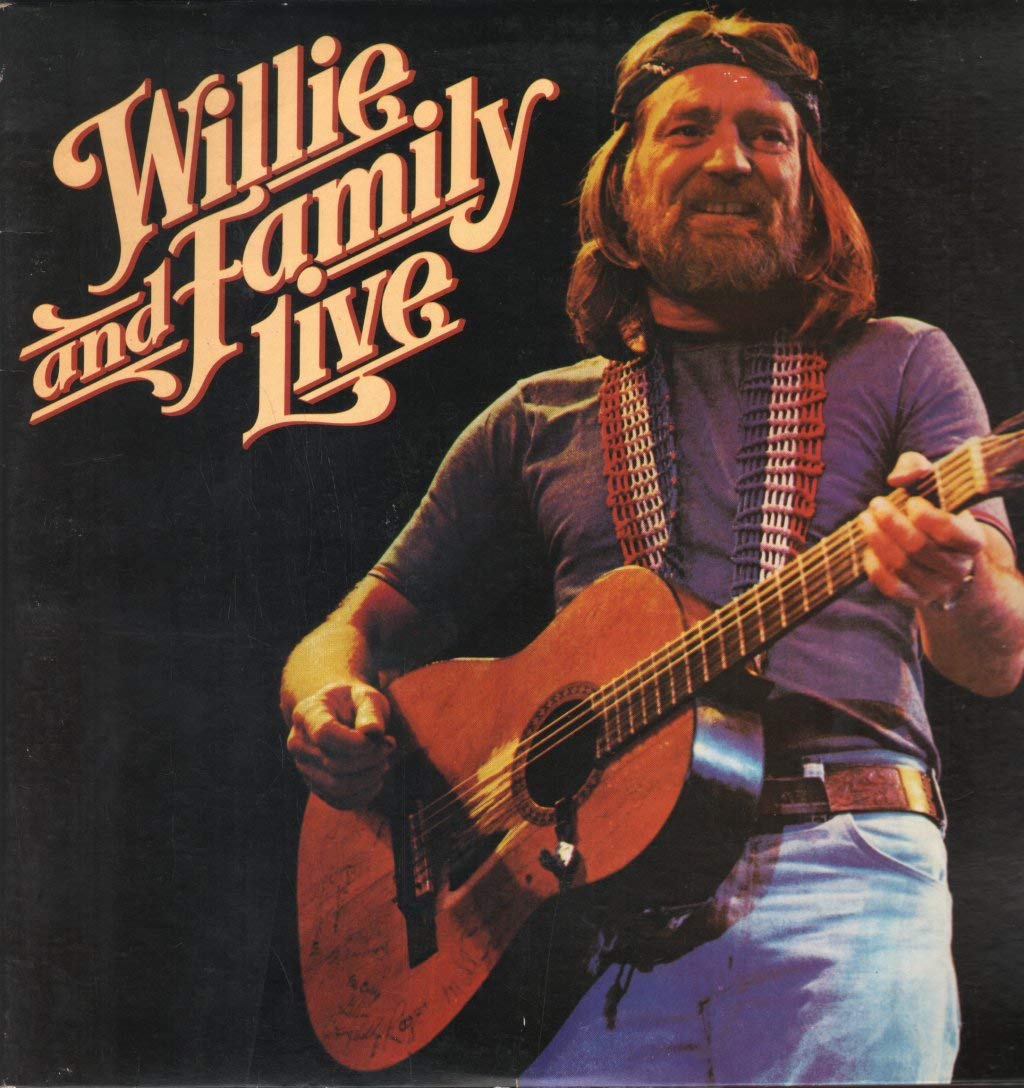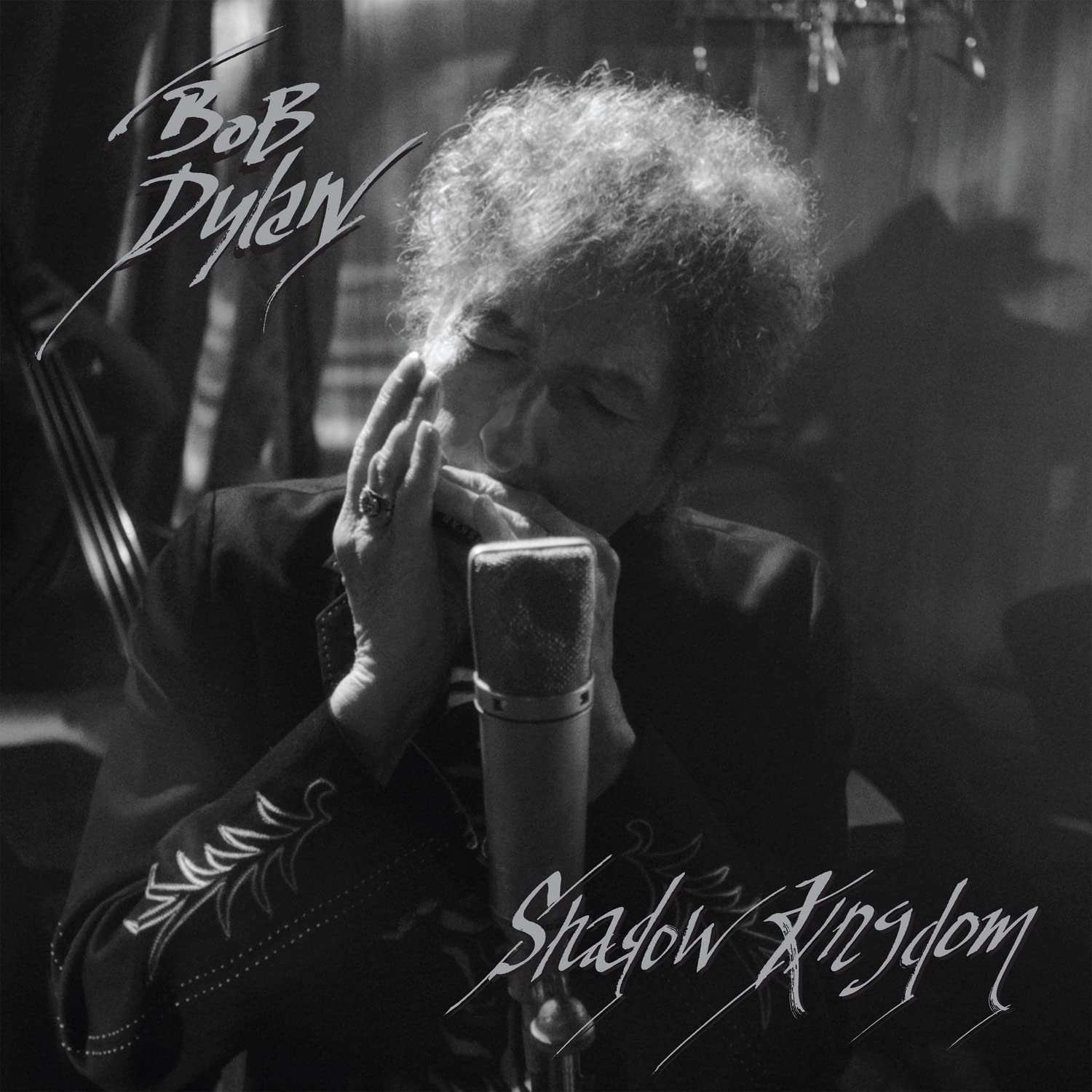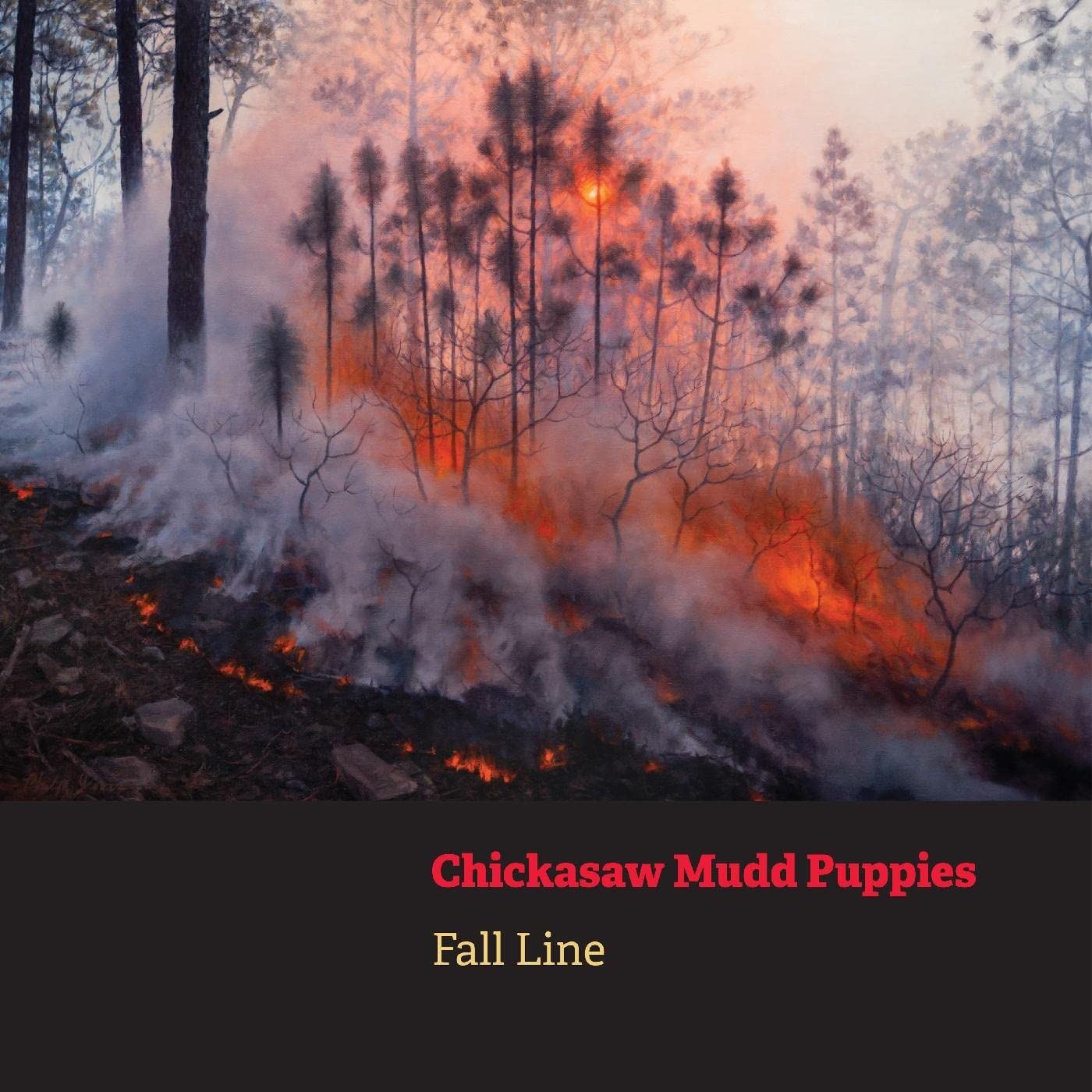
Ol’ Shotgun Willie has recently been in the news for all the right reasons. Mostly because our national treasure just turned 90, and he’s still out on the road (again) doing his thing with his Family band. Which is better than getting press for tax evasion or weed busts, but nothing could touch him now anyway. Go nuts, Willie. His band isn’t comprised of the same Family members that it was when he released his classic Willie and Family Live way the hell back in 1978. Often, his children play supportive roles in his band now, even if they’re not official members. Sadly, sister Bobbie Nelson passed away in 2022 at the age of 91. Mickey Raphael still blows harp though. As he has from the beginning. And that ain’t nothing. Time will ravage us all sooner or later, and it’s impossible to keep a band in pristine working condition. But the reports from LA were that Willie’s birthday shows were as stellar as the man’s career has been long, and I can say from first-hand experience that the band can still whip up an ass-kicking time onstage at the drop of a bandana.
So, this seems like as good a time as any to revisit Willie and Family Live. This is exactly what Vinyl Me, Please has facilitated for us fans. This is not a Record of the Month release, it’s a “VMP Exclusive,” and it’s available to members & non-subscribers alike, but you can’t get it anywhere besides VMP’s online store. With respect to Stardust, Always On My Mind, and even Red-Headed Stranger, Willie and Family is the most iconic title in Nelson’s esteemed catalog. I grew up seeing and hearing it everywhere. When I think of Willie, I think of Willie and Family Live. The cover image has been etched into my consciousness since I became conscious. For my money, this is the one to have.
And, if you’re considering spending your money on this version, it’s going to cost you between $50-$55. As with a lot of VMP releases, Ryan Smith cut the lacquers, and this is an all-analog production. VMP is pretty transparent about their sourcing, which is one of the things that I appreciate most about their business model, so it might be worth mentioning that the marketing materials indicate that this was cut “from tapes,” not “the original master tapes.” It’s possible that the originals burnt up in that fire at Universal in 2008. Or maybe they’re just too degraded to use.
Regardless, this release sounds great. VMP freely admits that the two records in this set were pressed at GZ, and they still sound great. I’ve done a ton of kvetching recently about the state of vinyl, generally, and with respect to warped records specifically, but I’ve listened to two separate copies of Willie and Family, and they were both flawless. I mean, the second records were not 100 percent flat, but the imperfections were very minor. Nothing that a reasonable listener would complain about, and certainly nothing that affects play.
The grooves are pretty packed. There’s a ton of material. I used to get a little bent when Prince would start one of my favorites of his songs, play a verse, then veer off into another tune as part of what would inevitably become a chopped-up medley. I saw Michael Jackson do the same thing. And Willie does it throughout Family Live but to greater effect. The transitions between “Crazy” and “Night Life” are so slick that you almost don’t notice the changes. The Red-Headed Stranger Suite is equally slippery. Each of the four sides offers a billion songs to explore without fatiguing the listener or losing any momentum. Emmylou and Johnny Paycheck guest. It’s a sonic celebration of a career that seemed to have already gone on forever, but, in retrospect, the bus was just starting to roll.
Willie and Family Live might not have the depth and detail of a Rudy Van Gelder Blue Note classic, but you can hear Willie’s nylon strings reverberate off Trigger’s fretboard, and there’s good separation and detail amongst the players. This 45th-anniversary edition will be in heavy rotation ‘round my place for a while, and I’ll revisit it often over the years, I’m sure. This is one of VMP’s finer offerings. The “Whiskey River” segue with “Stay A Little Longer” would be worth it alone. This is your shot. Don’t miss it.

If Willie Nelson is an American national treasure, maybe Bob Dylan is our national poet laureate. I don’t know. He’d find that ludicrous, I feel certain, but what can you say about the man that wouldn’t result in his dismissal of it? He’d likely say that there’s nothing to be said, nothing to see here. Just listen to the records. Or read the books. Or watch the movies. But the terrain of our artistic heritage would require an entirely different map had he not been here to chart his portion of the path. Which became a substantial part of the path. Perhaps the path itself.
His work has certainly provided an outsized dose of joy in my life. And it’s kept me afloat at times when joy was markedly absent. Time Out Of Mind seemed like a fork in the road as I was easing into my third decade, and I’d assumed at the time that it was going to approximate a bookend denoting the finality of his storied career. A triumphant exit. He’d have gone out on top after regaining his championship belt at what seemed to me like a remarkably old age for producing vital popular music. God help me, he was less than a decade older than I am now when he dropped that bomb on us, and he hasn’t really let up since. He was only 35 years into a career that has spanned seven decades so far.
Maybe it’s time to take a look back.
Maybe it’s time for Shadow Kingdom.
There was a “concert movie” of the same name released during the pandemic, and this is its soundtrack. But it was recorded prior to filming the talkie, which I reckon was built around these studio recordings of tunes from the earlier part of Dylan’s career as a song and dance man. Except for “What Was It You Wanted” from 1989’s Oh Mercy. There’s always a caveat with this guy. He’s slippery, hard to pin down. But he’s leaving a trail. Again. And Shadow Kingdom has some great vistas and views to take in if you want to linger for a second. And we probably should.
By now, all but the most casual of listeners will know that Dylan’s not going to play it straight. You’re not going to recognize large swaths of the setlist until he utters a lyric that you can latch onto. You’ll realize you’re hearing “When I Paint My Masterpiece” by his words before the melody tips you off. And that’s certainly true of many of the selections on Shadow Kingdom. “Most Likely You Go Your Way” is easy to spot, it comes close to being By the Book. Dylan almost lapses into spoken word presentations when performing live, but these songs weren’t recorded live. There’s less vocal power needed to get in front of the band. People have been saying for years that Dylan can’t sing, that’s inane. Disliking his voice is understandable. Saying he doesn’t have access to vocal technique, potency, or prowess is wrong.
And it’s all on display throughout Shadow Kingdom’s runtime. His voice is gravelly, of course, but also less haggard than it’s sounded in years. As expressive as the lines in our collective American forehead. There are no drums or percussion instruments to shout over, which is notable. An accordion fills in for any sort of piano or organ. Beyond that, you’ve got electric and acoustic guitars and basses to go along with Dylan’s ubiquitous harmonica. Always with the harmonica. Some of the Tex-Mex flavorings from Together Through Life are present, but mostly Dylan and his anonymous players sound like a seasoned string band making their way from town to town, saloon to saloon. Sawdust on the floor, and all that.
If none of that sounds interesting to you, then I guess you just don’t love Dylan. I know those folks are out there. Most of them are a lot younger than me and the people I run around with. For those of us who bought our tickets for this long ride, Shadow Kingdom is like a peek into the engine room. The two records were pressed well enough at Memphis Record Pressing (a permutation of the ever-present GZ), and Ryan Smith’s lacquers are clean as ever. As befits the title, there are no credits on this set beyond “all songs written by Bob Dylan.” The dead wax is your only indicator. But your ears will tell you a story. One that’s taken a while to write, but still holds up in modern times. If you’re a fan, your next move is clear even if Dylan’s never is.

Not sure what it says about me or the area in which I spent my youth, but one of the more formative experiences of my life occurred within the confines of the entryway to an independent record store on Central Avenue in Augusta, Georgia. The Nitty Gritty Dirt Band might have decided that was no place to be, but when the Chickasaw Mudd Puppies rocked the walls off of Radioactive Records circa 1990, my life was altered. I was learning that there was a viable alternative to what was on the radio and that musicians could express themselves (and have a lot of fun) while not adhering to what I called the “formula” then, “the algorithm” now.
The Mudd Puppies were a duo from Athens, Georgia. Brant Slay yelped and blew bursts of fire through his harmonica while stomping on amplified baseboards in lieu of actual drums. He did this from a seated position in his rocking chair. Ben Reynolds played the guitar. That’s it. That’s all it took. They whipped up a frenzy of sound and energy. Played Folk tunes at Punk speed. Most songs clocked in under three minutes, and they seemed to be drawing from a bottomless dirty well. Michael Stipe produced their debut EP, White Dirt, and none other than Willie Dixon helmed the controls on their major label debut a year later. It was unlike anything I’d heard but seemed as familiar as grits and chitterlings.
Then, they went away.
For 20 years.
I was stoked when I visited Athens at the end of that hiatus and caught them live at the Melting Pot. Never would have even thought to dream about it. Assumed they were in the wind for good. But they’d been asked to supply a tune for the soundtrack to a Jason Stratham movie, of all things, and got back on the horse. They still had it, and they still drew a crowd.
More recently, I learned that they’d released a new long player called Fall Line. They’ve added a drummer, signed with an indie label, and are still churning out the same brand of swampy funk that made them Athens legends. Some of the songs are more structured, there’s even what could be considered a bridge in one. There are more textures to explore. There are acoustic guitar tracks, and some friends drop in to flesh out some songs with additional instrumentation. Dobroes and banjoes and the like. The breakdowns that find Slay preacher-singing over a sparse beat before Reynolds comes back in like an avenging guitar slinger of doom are given even more weight by the refinements in their sound.
But the band is still a wrecking ball of kinetic electricity, man. Yeah, they’re not breaking any new ground. They’re still clomping down the same dirt road with their fishing poles resting on their collective muddy shoulders, but that’s the point. I mean, what else are they going to do? Whom are they going to be if not the Chickasaw by God Mudd Puppies? Some might call it schtick, but I’ve seen it up close and personal. This is no ruse. This is an organic stew oozing from the players’ pores. It’s its own mood. The music is in constant propulsion but manages to look back and to self-reference. (They’ve even re-recorded “Prison,” a track originally released way back in 1990. A classic then and now.)
I’ve not turned up any info with regards to who pressed Fall Line, but they did a fine job. New vinyl releases are a crap shoot at best when venturing outside of a trusted series, engineer, and/or label, but this one is a way above-average independent release. Flat and silent in all the right ways. It would be folly to pretend that we’re in the arena of the audiophile here. The recording was not made as such. This is a cacophony of rootsy Folk Blues. It’s here, then it’s gone, then you play it again. I’ve been blasting Mudd Puppies music since that teenage day in Augusta, and I haven’t tired of it yet. It might not be the Nitty Gritty Dirt Band’s “American Dream,” but it was a big part of mine. I think you’d dig it too.


